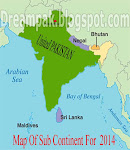The History of Pakistan as a state began with independence from British India on 14 August 1947, although the region now known as Pakistan (which was also known as Indus Valley region) has been inhabited continuously for at least two million years; the region's ancient history includes some of the oldest settlements of the Indian Subcontinent and some of its major civilizations.The political history of eventual birth of the country began in the aftermath of the Indian Rebellion of 1857, which culminated in 90 years of direct rule by the British Crown, and, subsequently, spawned a successful freedom struggle led by the Indian National Congress and later by the All India Muslim League. The latter was founded in 1906 to protect Muslim interests and rose to popularity in the late 1930s amid fears of neglect and under-representation of Muslims in politics. On 29 December 1930, the poet Muhammad Iqbal called for an autonomous "state in northwestern India for Indian Muslims".Muhammad Ali Jinnah espoused the Two Nation Theory and led the Muslim League to adopt the Lahore Resolution of 1940, demanding the formation of an independent Pakistan. Pakistan became independent from British India as a Muslim-majority state with two wings to the east and northwest of India respectively. Independence resulted in communal riots across India and Pakistan — as millions of Muslims moved to Pakistan and millions of Hindus and Sikhs moved to India. Disputes arose over several princely states including Kashmir and Jammu whose ruler had acceded to India following an invasion by tribesmen from Pakistan. This led to the First Kashmir War (1948) which ended with India administrating roughly two-thirds of the state and Pakistan occupying the remainder. A republic was declared in 1956 but was stalled by a coup d'etat by Ayub Khan (1958–69), who ruled during a period of internal instability and a second war with India in 1965. Economic grievances and political dissent in East Pakistan led to violent political tensions and army repression, escalating into civil warfollowed by the Indo-Pakistani War of 1971 and ultimately the secession of East Pakistan as the independent state of Bangladesh.
Civilian rule resumed from 1972 to 1977 under Zulfikar Ali Bhutto, until he was deposed by General Zia-ul-Haq, who became the country's third military president. Pakistan's secular policies were replaced by the Islamic Shariah legal code, which increased religious influences on the civil service and the military. With the death of General Zia in a plane crash in 1988, Benazir Bhutto, daughter of Zulfikar Ali Bhutto, was elected as the first female Prime Minister of Pakistan. Over the next decade, she alternated power with Nawaz Sharif, as the country's political and economic situation worsened. Military tensions in the Kargil conflict with India were followed by a Pakistani military coup d'état in 1999 in which General Pervez Musharraf assumed executive powers. In 2001, Musharraf named himself President after the forced resignation of Rafiq Tarar. After the 2002 parliamentary elections, Musharraf transferred executive powers to newly elected Prime Minister Zafarullah Khan Jamali, who was succeeded in the 2004 Prime-Ministerial election by Shaukat Aziz, followed by a temporary period in office by Chaudhry Shujaat Hussain. On 15 November 2007 the National Assembly completed its term and a caretaker government was appointed with the former Chairman of the Senate, Muhammad Mian Soomro as Prime Minister. The assassination of Benazir Bhutto resulted in a series of important political developments: The general elections were postponed until 18 February 2008; a coalition government came to power after the elections; President Musharraf stepped down and a civilian, Asif Ali Zardari, was elected as the new President.


